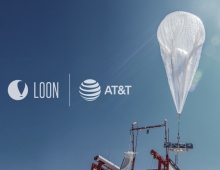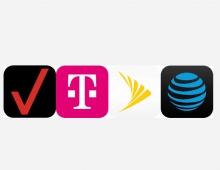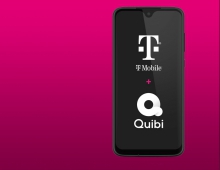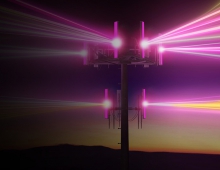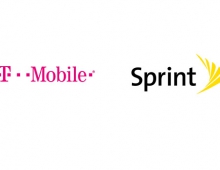
AT&T to Acquire T-Mobile USA For $39 Billion
AT&T announced on Sunday that it would acquire T-Mobile USA from Deutsche Telekom in a cash-and-stock transaction currently valued at approximately $39 billion; a deal that would create the largest carrier in the nation and promised to reshape the industry.
The agreement has been approved by the Boards of Directors of both companies, the companies said.
AT&T?s acquisition of T-Mobile USA provides a combination of network assets to add capacity sooner than any alternative, and it provides an opportunity to improve network quality in the near term for both companies' customers. In addition, it provides a fast and efficient solution to the impending exhaustion of wireless spectrum in some markets, which limits both companies' ability to meet the ongoing explosive demand for mobile broadband.
With this transaction, AT&T commits to a significant expansion of 4G LTE (Long Term Evolution) deployment to 95 percent of the U.S. population to reach an additional 46.5 million Americans beyond current plans ? including rural communities and small towns.
"This transaction represents a major commitment to strengthen and expand critical infrastructure for our nation's future," said Randall Stephenson, AT&T Chairman and CEO. "It will improve network quality, and it will bring advanced LTE capabilities to more than 294 million people. Mobile broadband networks drive economic opportunity everywhere, and they enable the expanding high-tech ecosystem that includes device makers, cloud and content providers, app developers, customers, and more. During the past few years, America?s high-tech industry has delivered innovation at unprecedented speed, and this combination will accelerate its continued growth."
Stephenson continued, "This transaction delivers significant customer, shareowner and public benefits that are available at this level only from the combination of these two companies with complementary network technologies, spectrum positions and operations. We are confident in our ability to execute a seamless integration, and with additional spectrum and network capabilities, we can better meet our customers' current demands, build for the future and help achieve the President's goals for a high-speed, wirelessly connected America."
As part of the transaction, Deutsche Telekom will receive an equity stake in AT&T that, based on the terms of the agreement, would give Deutsche Telekom an ownership interest in AT&T of approximately 8 percent. A Deutsche Telekom representative will also join the AT&T Board of Directors.
The U.S. wireless industry is one of the most fiercely competitive markets in the world. The U.S. is one of the few countries in the world where a large majority of consumers can choose from five or more wireless providers in their local market. AT&T said that the competitiveness of the market will remain so after this deal.
AT&T added that both its customers and T-Mobile's customers will see service improvements - including improved voice quality - as a result of additional spectrum, increased cell tower density and broader network infrastructure. At closing, AT&T will immediately gain cell sites equivalent to what would have taken on average five years to build without the transaction. The combination will increase AT&T's network density by approximately 30 percent in some of its most populated areas, while avoiding the need to construct additional cell towers.
This transaction will also directly benefit an additional 46.5 million Americans who will, as a result of this combination, have access to AT&T's latest 4G LTE technology. Rural and smaller communities will also benefit from the expansion of 4G LTE deployment.
The $39 billion purchase price will include a cash payment of $25 billion with the balance to be paid using AT&T common stock, subject to adjustment.
The acquisition is also subject to regulatory approvals, a reverse breakup fee in certain circumstances, and other customary regulatory and other closing conditions. The transaction is expected to close in approximately 12 months.
Sprint Nextel objected to the $39 billion deal and said it would "alter dramatically" the US cellular landscape.
"If approved, the merger would result in a wireless industry dominated overwhelmingly by two vertically-integrated companies that control almost 80% of the US wireless post-paid market, as well as the availability and price of key inputs such as backhaul and access needed by other wireless companies to compete," Sprint said.
AT&T?s acquisition of T-Mobile USA provides a combination of network assets to add capacity sooner than any alternative, and it provides an opportunity to improve network quality in the near term for both companies' customers. In addition, it provides a fast and efficient solution to the impending exhaustion of wireless spectrum in some markets, which limits both companies' ability to meet the ongoing explosive demand for mobile broadband.
With this transaction, AT&T commits to a significant expansion of 4G LTE (Long Term Evolution) deployment to 95 percent of the U.S. population to reach an additional 46.5 million Americans beyond current plans ? including rural communities and small towns.
"This transaction represents a major commitment to strengthen and expand critical infrastructure for our nation's future," said Randall Stephenson, AT&T Chairman and CEO. "It will improve network quality, and it will bring advanced LTE capabilities to more than 294 million people. Mobile broadband networks drive economic opportunity everywhere, and they enable the expanding high-tech ecosystem that includes device makers, cloud and content providers, app developers, customers, and more. During the past few years, America?s high-tech industry has delivered innovation at unprecedented speed, and this combination will accelerate its continued growth."
Stephenson continued, "This transaction delivers significant customer, shareowner and public benefits that are available at this level only from the combination of these two companies with complementary network technologies, spectrum positions and operations. We are confident in our ability to execute a seamless integration, and with additional spectrum and network capabilities, we can better meet our customers' current demands, build for the future and help achieve the President's goals for a high-speed, wirelessly connected America."
As part of the transaction, Deutsche Telekom will receive an equity stake in AT&T that, based on the terms of the agreement, would give Deutsche Telekom an ownership interest in AT&T of approximately 8 percent. A Deutsche Telekom representative will also join the AT&T Board of Directors.
The U.S. wireless industry is one of the most fiercely competitive markets in the world. The U.S. is one of the few countries in the world where a large majority of consumers can choose from five or more wireless providers in their local market. AT&T said that the competitiveness of the market will remain so after this deal.
AT&T added that both its customers and T-Mobile's customers will see service improvements - including improved voice quality - as a result of additional spectrum, increased cell tower density and broader network infrastructure. At closing, AT&T will immediately gain cell sites equivalent to what would have taken on average five years to build without the transaction. The combination will increase AT&T's network density by approximately 30 percent in some of its most populated areas, while avoiding the need to construct additional cell towers.
This transaction will also directly benefit an additional 46.5 million Americans who will, as a result of this combination, have access to AT&T's latest 4G LTE technology. Rural and smaller communities will also benefit from the expansion of 4G LTE deployment.
The $39 billion purchase price will include a cash payment of $25 billion with the balance to be paid using AT&T common stock, subject to adjustment.
The acquisition is also subject to regulatory approvals, a reverse breakup fee in certain circumstances, and other customary regulatory and other closing conditions. The transaction is expected to close in approximately 12 months.
Sprint Nextel objected to the $39 billion deal and said it would "alter dramatically" the US cellular landscape.
"If approved, the merger would result in a wireless industry dominated overwhelmingly by two vertically-integrated companies that control almost 80% of the US wireless post-paid market, as well as the availability and price of key inputs such as backhaul and access needed by other wireless companies to compete," Sprint said.

